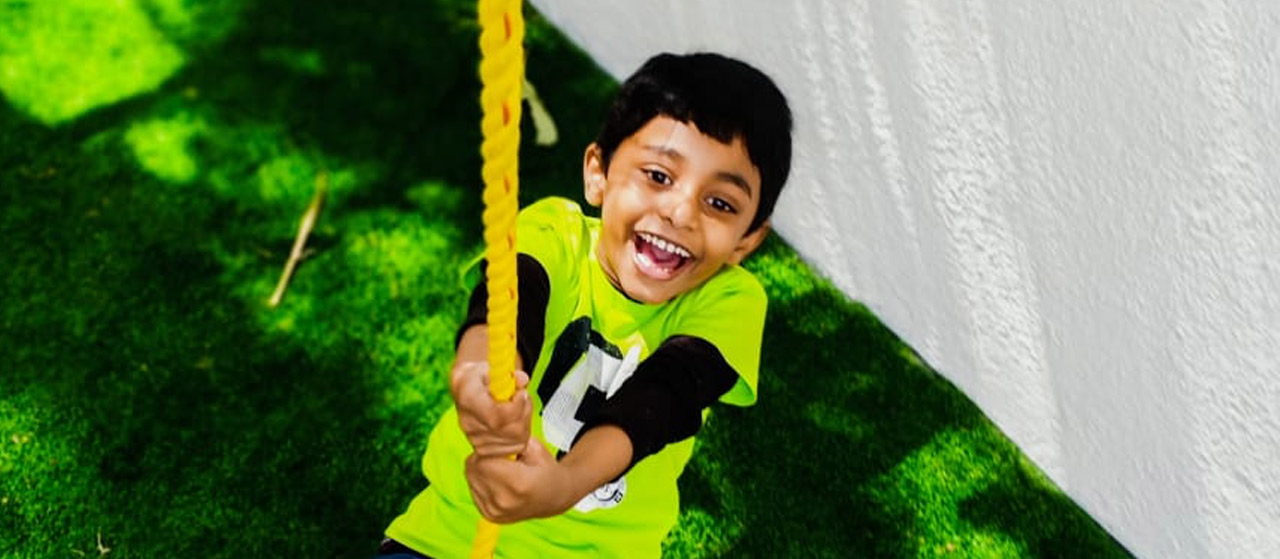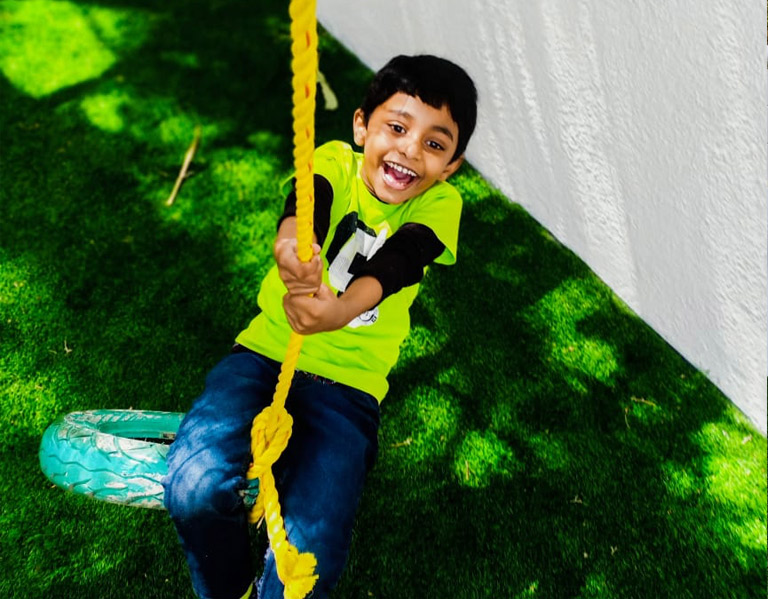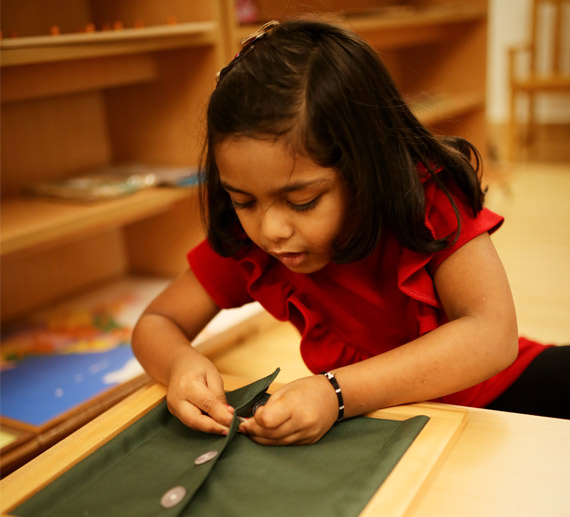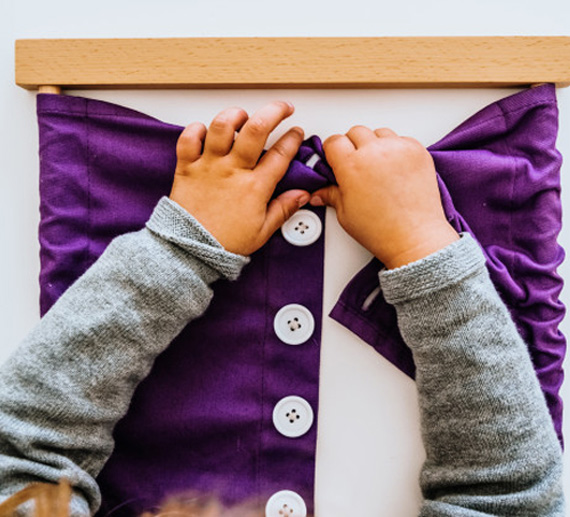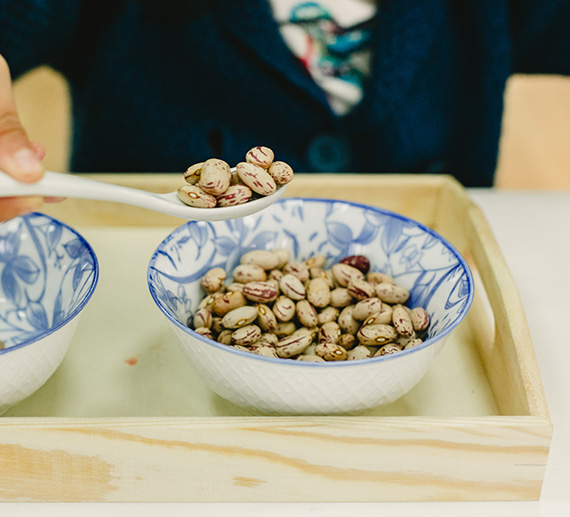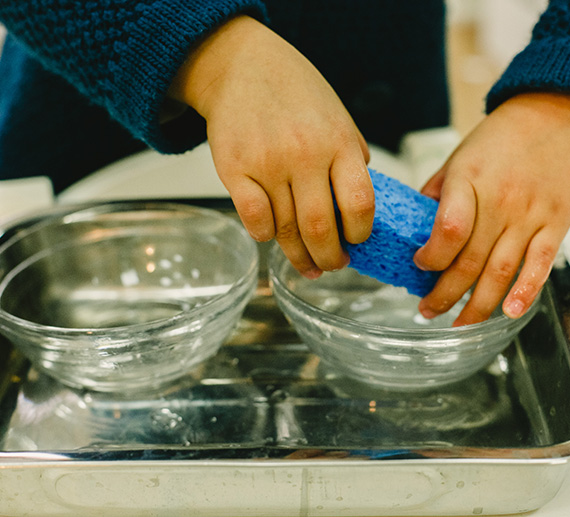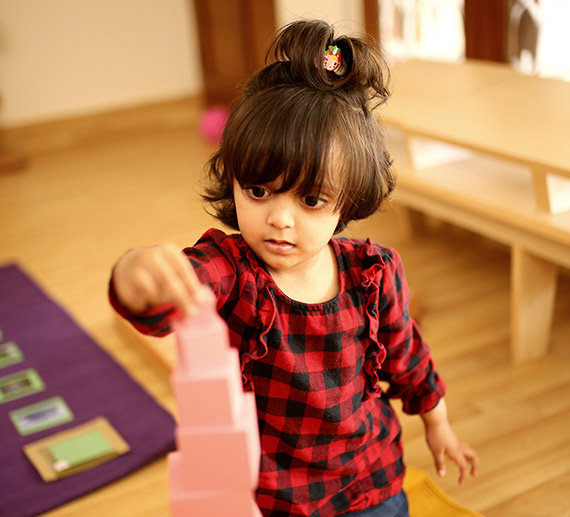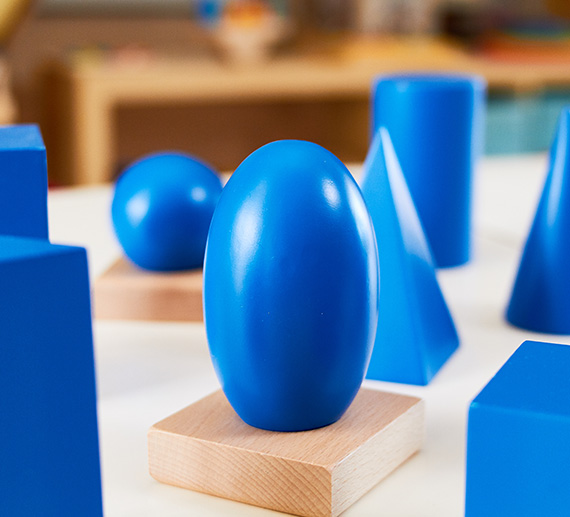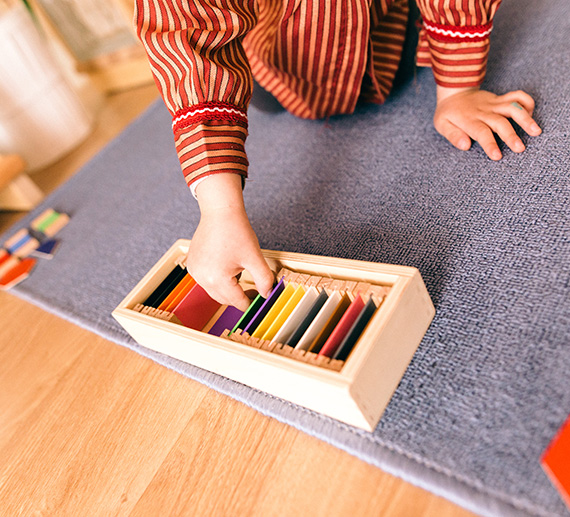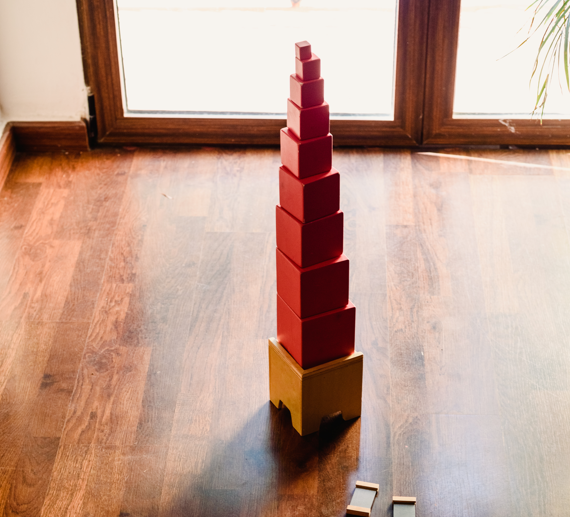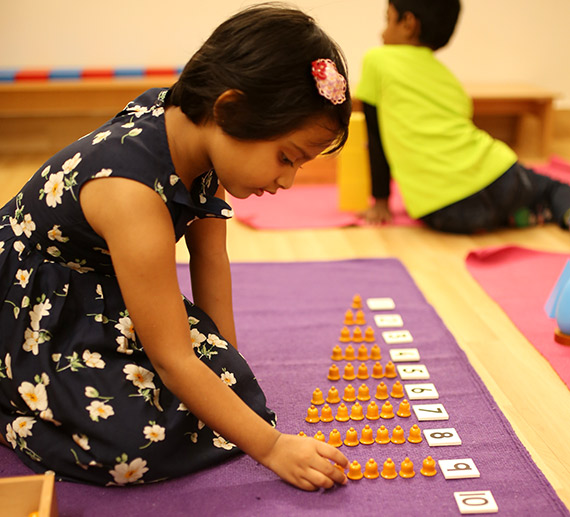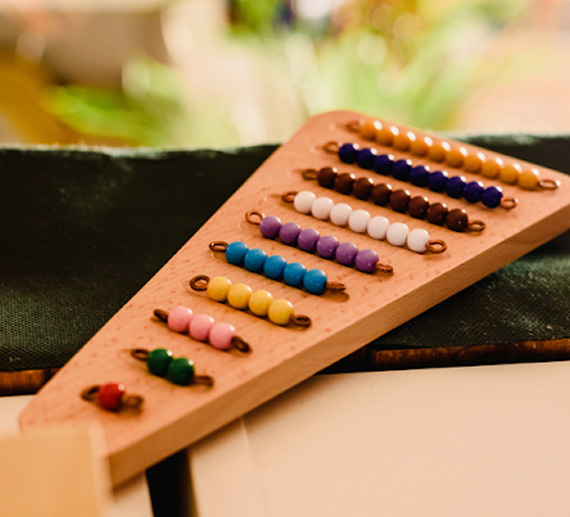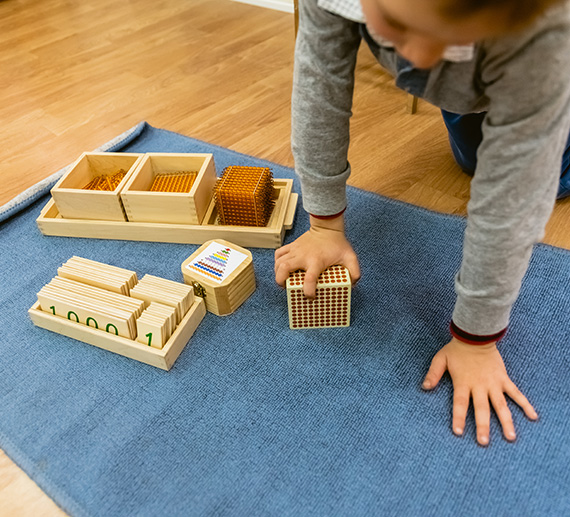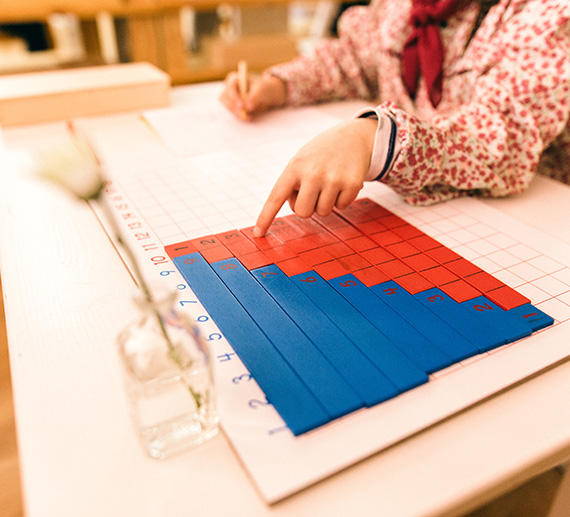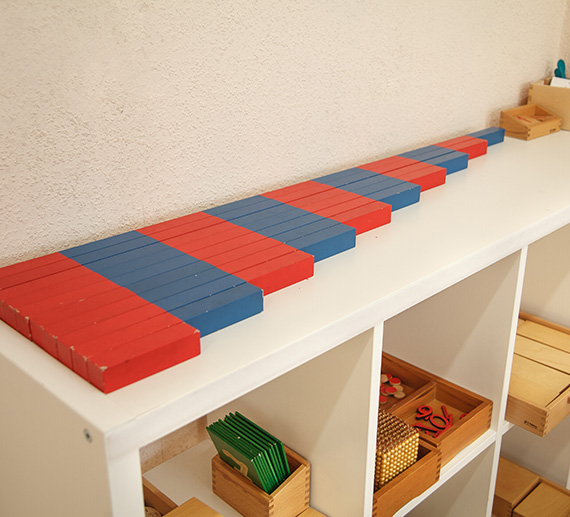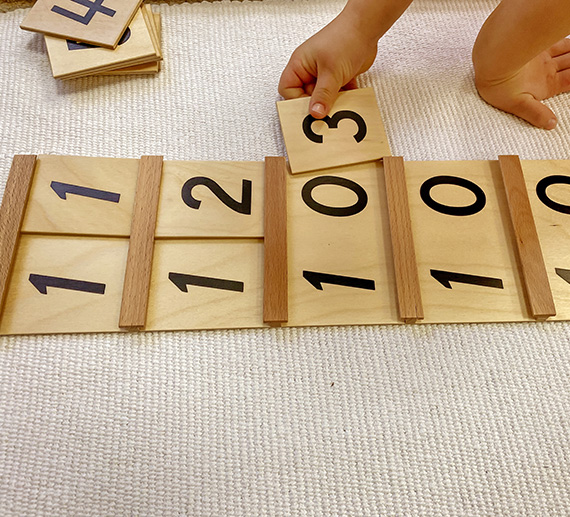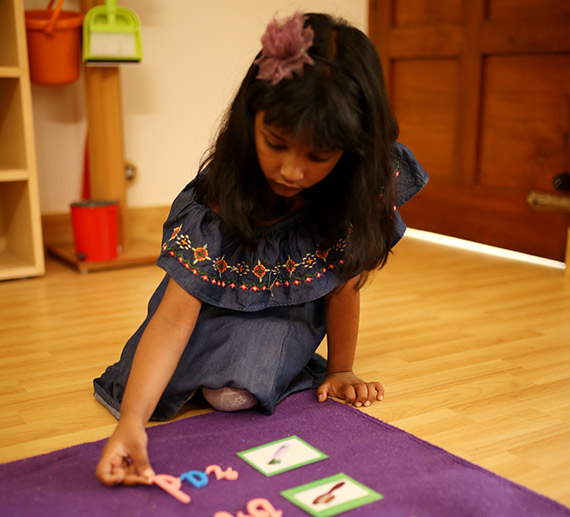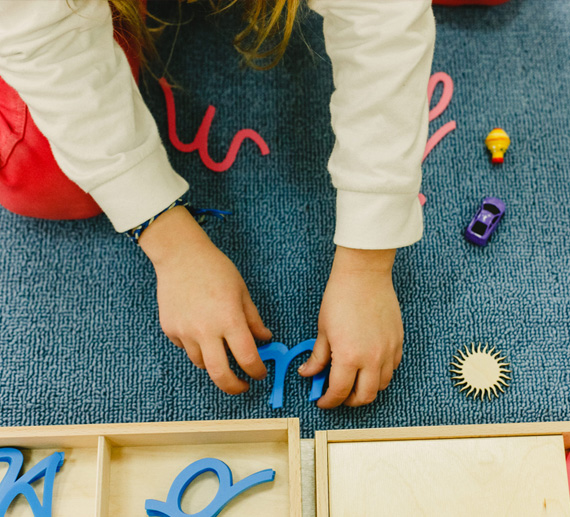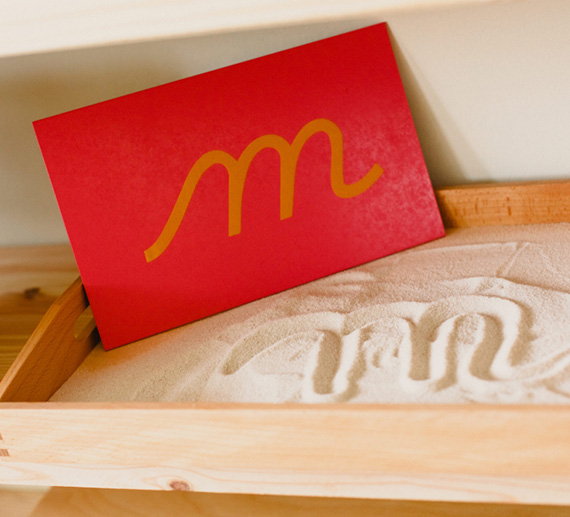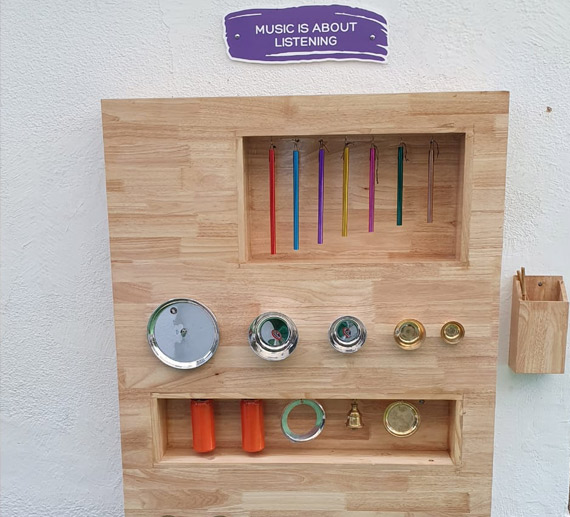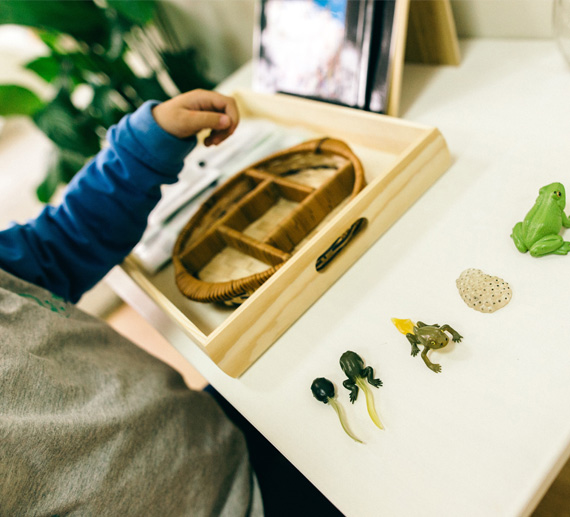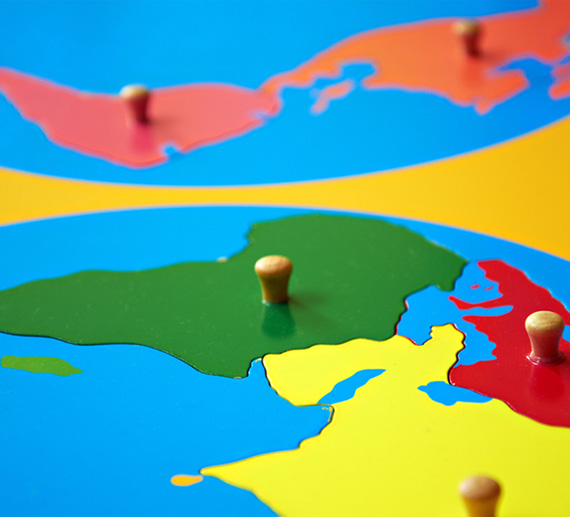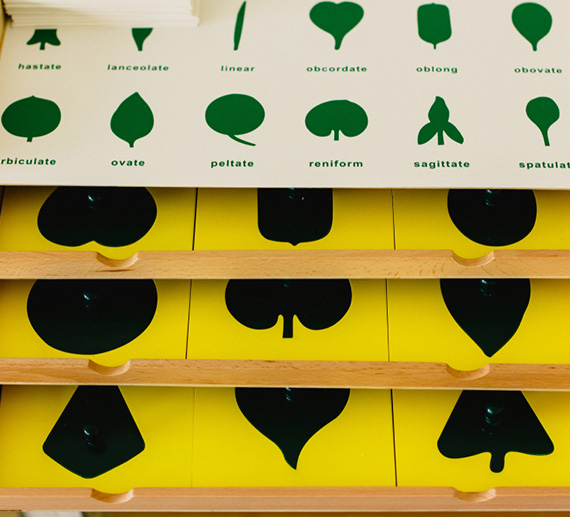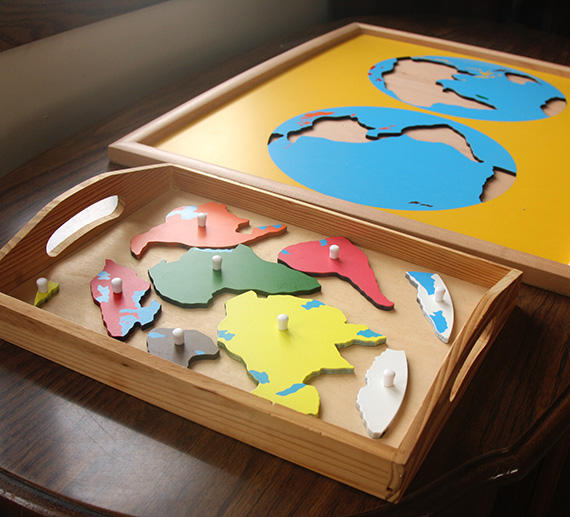- Dr. Maria Montessori
“The unknown energy that can help humanity is that which lies hidden in the child.”
The Montessori Method of Education was developed by Dr. Maria Montessori, the first Italian female doctor. The method emphasizes the importance of a child’s holistic development, by enabling the child to make choices, interact with one’s world, and thereby grow one’s character. Montessori teaching views a child as being at par with an adult, in that each child has perceptions, emotions, talents and abilities that must be respected, and if encouraged, grow into healthy expressions.
Every child has a unique journey to learning. We are here to guide yours.
TODDLERS
Age: 2 years – 2 years 6 months
Timings: 9am – 12 noon
PRE-PRIMARY
Age: 2years 6months – 4years 5months
Timings: 9 am – 1:00 pm
Age: 5 years – 6 years
Timings: 9 am – 1:00 pm
The Montessori Method of Education recognizes that each child has unique emotions, talents and abilities which must be encouraged and brought out. Each child is motivated to develop at his own pace following his/her distinct path.
The children find an ambience of freedom to choose while abiding by rules and discipline; which inculcates in them an idea of right/wrong and fosters an independent mind to apply such judgement.
The Montessori method of teaching children envisages five groups:
1. EXERCISES OF PRACTICAL LIFE
These exercises provide a foundation for all other activities in the Montessori environment. These include simple activities which an adult performs in the course of daily life e.g. walking, sitting, holding and carrying things, rolling/unrolling, folding/unfolding things, etc and general social behavior such as greeting, talking, etc. Children have a strong urge to perform activities they have observed since birth. The adult guides the children in performing such activity in the proper manner. These activities help the child develop concentration and coordination, social awareness and a sense of order in the environment.
2. SENSORIAL ACTIVITIES
Dr Maria Montessori describes the child as a ‘sensorial explorer’ because children learn through sensorial experiences. Right from birth a child is exposed to visual, auditory, olfactory and tactile perceptions through which they identify the world. Montessori sensorial material enable the child to identify, shape, size, colour, weight, texture, sound, smell etc and relate that with his/her surrounding.
3. ARITHMETIC ACTIVITIES
Human beings have the unique ability to imagine, create and think abstractly. Dr Montessori designed the arithmetic materials to stimulate the natural capabilities of a child’s mathematical mind. These materials help the child appreciate abstract concepts by presenting them in a concrete form. The child gets familiar with numbers, the decimal system and eventually is introduced to four arithmetic operations across hierarchies. This leads to a strong understanding of various mathematical concepts.
4. LANGUAGE ACTIVITIES
Language is an entirely human creation, and contributes to our role as social animals, capable of communicating and receiving information. It is an integral part of our lives and is absorbed unconsciously from birth. Language is informally introduced by enriching his vocabulary through activities like stories, songs, conversations and names of various things around him. Formally, language is introduced in the form of phonetics, writing, reading and grammar. In a Montessori environment writing and reading comes as an ‘explosion’ and when that occurs, they bring tremendous joy to the child.
5. ITEMS OF HUMAN CULTURE
The study of culture extends to and incorporates Art, History, Geography, Zoology,Botany and the Physical Sciences. The child needs to understand and appreciate basic forms of art and music, which will help him/her adapt to the society and also to appreciate different forms of music and arts. Simple musical instruments to help them develop a sense of music and various tools and medium of art such as crayons, paints and chalk are provided. In History the child is made aware of passage of time, mainly through stories. In Geography the child learns about continents, countries, customs, food, language and other aspects of life. Botany and Zoology lessons are taught by means of narration and materials and the children are encouraged to explore the same in outdoor environment.Physical science is introduced to them through real life experiences and simple experiments.


